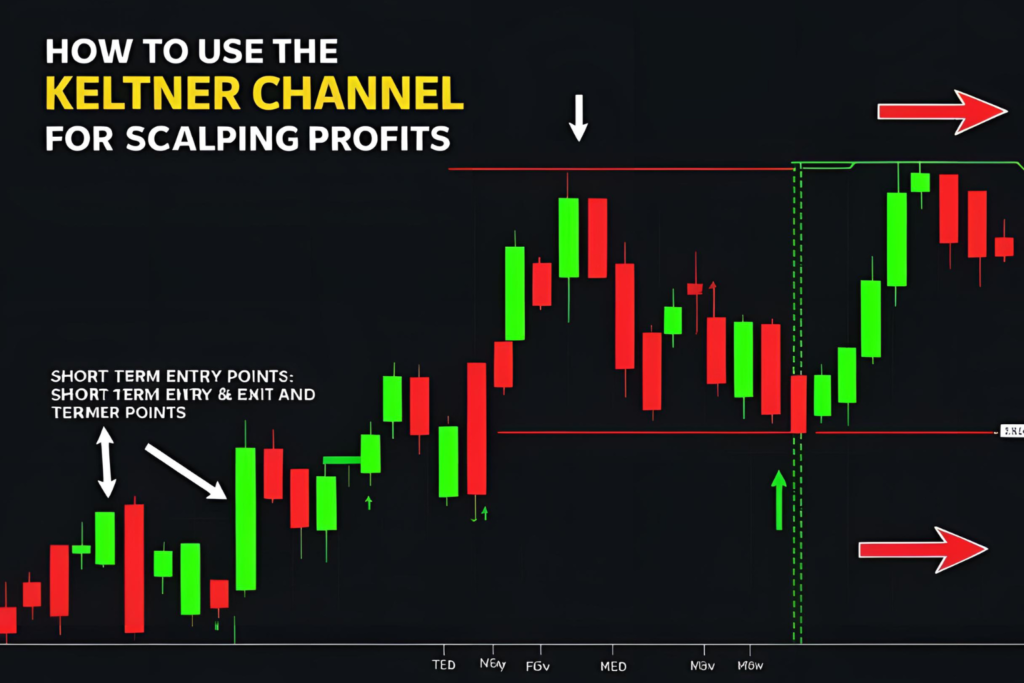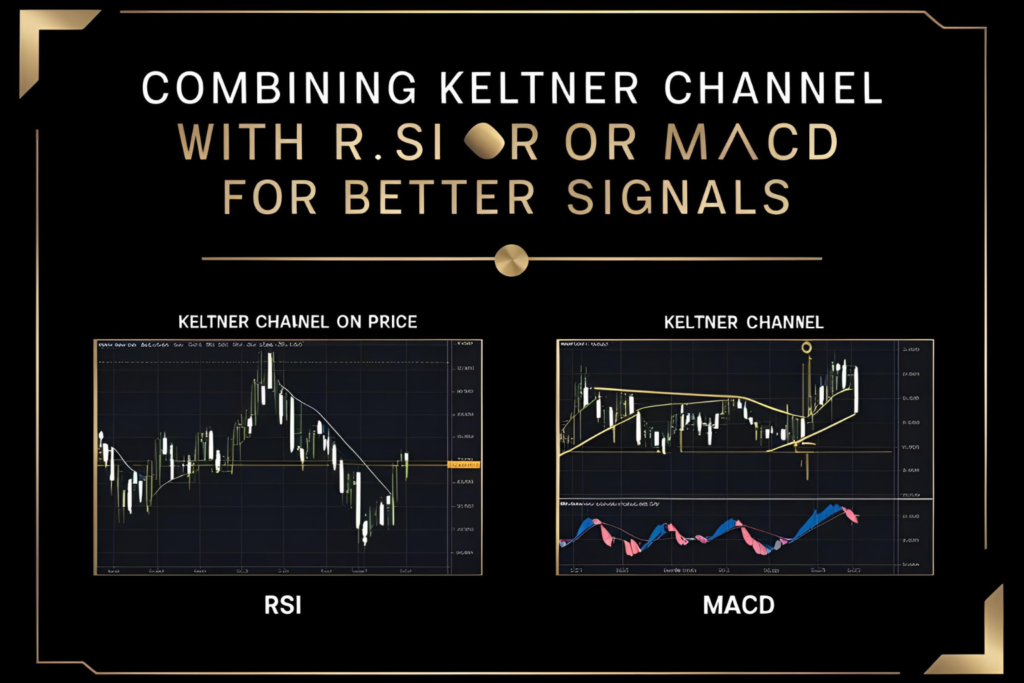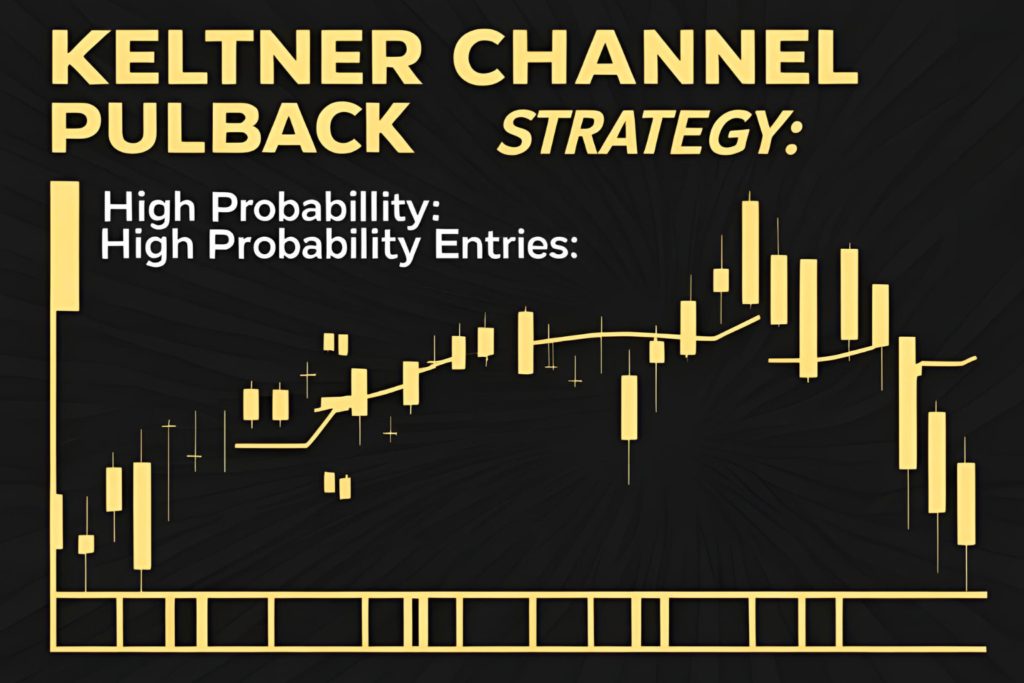The Keltner Channel is a dynamic indicator that adapts to market volatility and trend conditions. One of its most powerful applications is identifying breakout trades—moves where price escapes a consolidation zone with momentum.
In this post, you’ll learn a complete Keltner Channel breakout strategy, including rules for entry, stop-loss, and target placement.
Why Use Keltner Channels for Breakouts?
The Keltner Channel provides:
- A volatility-based envelope that adapts to market conditions
- A clear visual guide for breakout zones
- A reliable way to avoid false breakouts in low volatility setups
Step-by-Step Keltner Channel Breakout Strategy
1. Identify the Setup
- Use a 20 EMA and 2× ATR multiplier for the Keltner Channel
- Wait for the price to consolidate inside the channel for at least 5–10 candles
- Confirm narrowing channel bands, indicating low volatility
2. Confirm the Breakout
- Look for a strong candle closing above the upper band for a long entry
- For a short entry, wait for a candle to close below the lower band
- Volume should increase during the breakout to confirm strength
3. Entry Rules
- Enter at the close of the breakout candle or on a slight pullback
- Confirm direction with trend tools like RSI, MACD, or ADX
4. Stop-Loss Placement
- Place stop-loss below the lower band for long trades
- For short trades, place stop-loss above the upper band
- Use recent swing lows/highs for additional confirmation
5. Target Levels
- Use a 1:2 or 1:3 risk-to-reward ratio
- Consider recent support/resistance or measured move targets
- You can also use the width of the channel to project targets
Example Trade
- Price consolidates in a tight range near resistance
- Bands narrow, signaling low volatility
- Breakout candle closes above the upper band on high volume
- Long entry taken with stop below lower band
- Target is 2× the risk amount or recent high
This is a classic volatility expansion breakout using the Keltner Channel.
Tips for Success
- Don’t trade every band breakout—look for tight ranges before breakout
- Use the Keltner Channel with confirmation indicators
- Avoid trading near major news events
- Backtest the setup across different timeframes and instruments
Final Thoughts
A well-structured Keltner Channel breakout strategy helps you enter trending moves early while keeping risk controlled. With a few key confirmations like volume and candle structure, this approach becomes a powerful part of your trading system.
FAQs
1. Can I use this breakout strategy on intraday charts?
Yes. It works well on 5-minute to 1-hour charts for intraday trades.
2. What if the price breaks out but then reverses?
This may be a false breakout. Avoid trading when bands are wide or news is pending.
3. Should I use trailing stops?
Yes. You can trail stops behind the opposite band or use a fixed trailing method.
4. Does this strategy work for forex or crypto?
Yes. It works on any liquid market where volatility matters.
5. Can I automate this strategy?
Yes. It can be coded into platforms like TradingView (Pine Script), MT4, or NinjaTrader.



